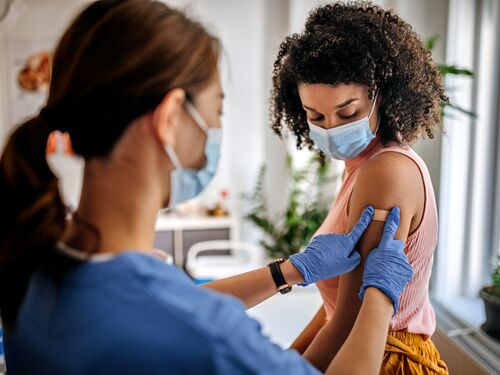Decision to Overturn Roe v. Wade Could Worsen Reproductive Health in U.S., Exacerbate Health Inequities
Statement
Last update June 24, 2022
For decades, the National Academy of Sciences and the National Academy of Medicine have advised the nation on many issues related to maternal and reproductive health, unintended pregnancy, prenatal care, racial and ethnic disparities in health care, and abortion. In light of the decision to overturn Roe v. Wade, the National Academies are committed to mobilizing the scientific, medical, and health care communities to identify actions that can mitigate the potential negative impacts of this decision and that can advance health equity.
The U.S. Supreme Court’s ruling to overturn Roe v. Wade will likely make it even more difficult for women* to access high-quality health care in this country. The risks are especially acute for women of color, women from low-income backgrounds, and women living in rural areas.
The U.S. already has one of the highest maternal mortality rates of any developed country, especially for women of color, and state laws and regulations limiting or impacting abortion create more barriers to obtaining safe and effective reproductive care. In addition, women with unintended pregnancies are less likely to receive needed prenatal care, can be at higher risk for medical complications, and are more likely to experience poor neonatal outcomes. In states that ban or severely limit access to abortion, geographic inequities are likely to worsen and widen the gap between women who can access safe abortion and those who cannot.
The nation must act urgently and redouble efforts to improve maternal and reproductive health and increase access to quality health care for all.
Marcia McNutt
President, National Academy of Sciences
Victor J. Dzau
President, National Academy of Medicine
*The term ‘women’ is used for the purposes of this statement; however, the National Academies recognize and understand that the term ‘pregnant women’ or ‘woman’ may not reflect how some pregnant individuals or others seeking reproductive health care may identify.
More like this
Events
Right Now & Next Up
Stay in the loop with can’t-miss sessions, live events, and activities happening over the next two days.
TRB Annual Meeting | January 11 - 15, 2026
January 11 - 15, 2026 | The TRB Annual Meeting brings together thousands of transportation professionals worldwide for sessions across all modes and sectors.


